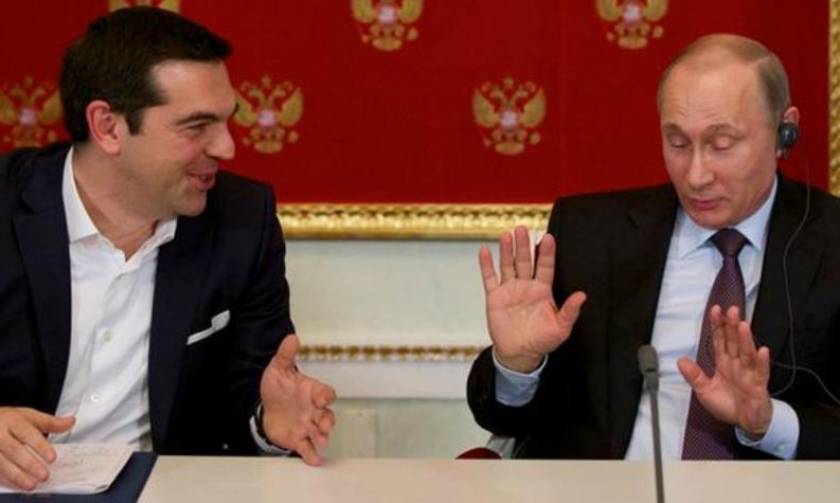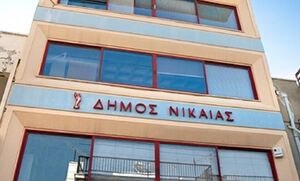D.W.: Athens eyes millions worth of Russian gas cash

Moscow is prepared to pay billions to Athens in exchange for a gas pipeline deal, according to German and Greek media. The deal would have the potential to turn around Greece's economic crisis, one observer has said.
A potential agreement for a new Russian gas pipeline to be run through Greece could be worth between 3 million euros and 5 million euros for the Athens government, German news site Spiegel Online reported Saturday, citing an anonymous Syriza party official.
"It could turn the tide for Greece," the official was quoted as saying, referring to Athens' bid to stave off creditors and avoid defaulting on loan repayments.
The Spiegel Online article reported that the agreement is expected to be signed between the two countries on Tuesday.
Greek Prime Minister Alexis Tsipras (pictured above, left, with President Putin) and Energy Minister Panagiotis Lafazanis are believed to have come to an agreement with Russian President Vladimir Putin when they traveled to Moscow at the beginning of the month.
The proposed pipeline, which has not been approved by the European Union, could deliver Russian gas via Turkey and Greece to Europe. Though some observers doubt the pipeline will be built on-time - or even at all - some predict it could be operational by 2019.
Greek magazine also reported Saturday that the government was looking to Moscow and Beijing for financing worth a total of 15 billion euros, "Agora" and "Karfi" reported, quoting government sources.
Greece, creditors to hold talks
Meanwhile, Greece and its international creditors are expected to meet in Paris on Saturday to discuss Athens' debt bailout program and reforms it must undertake to secure much needed funds.
"The Brussels group is meeting this weekend as of tomorrow afternoon," European Commission spokesperson Mina Andreeva told a media conference on Friday.
The Brussels group consists of Greece, the European Union, the European Central Bank and the International Monetary Fund.
The European Stability Mechanism, which is responsible for issuing bonds and other debt instruments on financial markets in order to raise capital to aid member states, will also part-take in the weekend talks.
For "logistical reasons," the meeting will take place in Paris, not Brussels as was previously planned, an unnamed European source told the AFP news agency.
"We are trying to keep the process moving," the source was quoted as saying.
"The problem is not that there is not enough dialogue, but that there is not enough technical work. The process lacks numbers, detailed tables," she added.
The discussion is not at the point of "talking about a bailout," she said.
The weekend talks come ahead of an unofficial meeting in the Latvian capital of Riga on April 24 where Andreeva said finance ministers of the 19-country eurozone will have the chance "to take stock of progress."
Greece is hopeful the final part of its bailout funding, worth 7.2 billion euros ($7.8 billion), will mean Athens avoids bankruptcy and is able to repay debts to the IMF and European Central Bank.
German Finance Minister Wolfgang Schäuble, however, has said he does not expect a quick agreement to be reached. Among Greece's biggest creditors, Berlin has long called on Athens to institute austerity measures and other changes before providing more money to the cash-strapped nation.
"There is nothing new," Schäuble said Friday ahead of the spring meeting of the International Monetary Fund. "And I'm not certain there will be anything new next week in Riga."
Source: Deutche Welle













